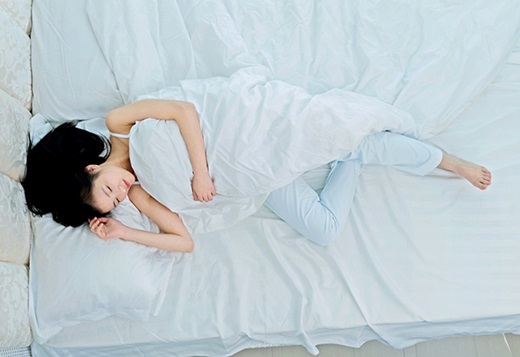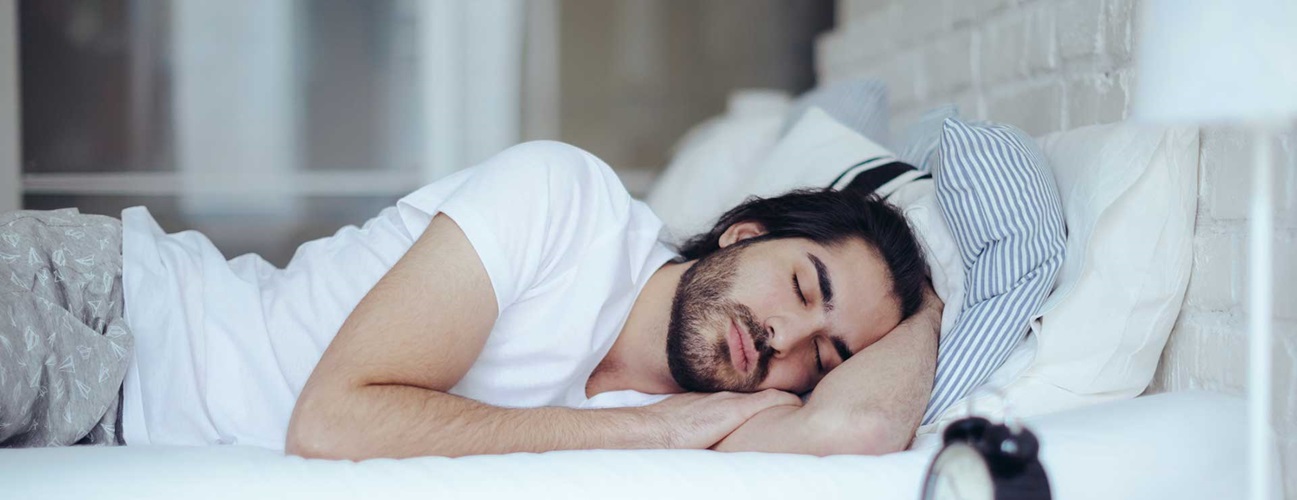Choosing the Best Sleep Position
When you curl up under the covers at night, you probably settle into your
favorite position without thinking much about it. But could one sleep
position be better than another?

“We could argue that some are better than others,” says Rachel Salas, M.D. , an associate professor of neurology at Johns Hopkins Medicine. “But there are caveats.”
Salas explains when and why position matters.
Pick Your Position
For young, healthy people, sleep position is less important, Salas says. “But as you get older and have more medical issues, sleep position can become positive or negative.”
Consider these factors before you switch off the light:
- Back and neck pain: When it comes to alleviating pain, sleeping on your back is a mixed bag, Salas says. For people with neck pain, sleeping face up can sometimes make the pain worse. But many people find back sleep is helpful for alleviating low-back pain. If you have soreness in your spine, experiment with different positions and pillows to find what works for you.
- Snoring and sleep apnea: Obstructive sleep apnea causes the airways to collapse during sleep, leading to pauses in breathing. It often goes hand-in-hand with snoring. Positioning yourself on your side or stomach can help the airways stay open to reduce snoring and alleviate mild apnea, Salas says.
- Reflux and heartburn: If you suffer from heartburn, sleeping on your right side can make symptoms worse, Salas says. That’s true for people who have gastroesophageal reflux disease (GERD) and for people who have heartburn for other reasons, such as pregnant women. Flip to your left side to cool the burn.
- Appearance: If you sleep on your side or stomach, you’ve probably noticed creases on your face when you wake up. “Over time, that can lead to breakouts or cause chronic changes to the skin,” Salas says. “If you’re concerned about wrinkles, it’s another reason to sleep on your back.”
Position Your Bed For Comfort
If those concerns don’t apply to you, you can let comfort be your guide, Salas says.
But sleep position isn’t the only thing to consider when going for a comfortable night’s sleep.
Salas recommends replacing old mattresses and pillows. Choosing soft-versus-hard is just a matter of preference, but aim for something supportive, she says. If you have neck or shoulder pain, a supportive pillow designed to cradle the neck could be helpful. A bolster or pillow supporting the legs could ease pain in the lower back.
Don’t underestimate the importance of optimizing your bedroom to help you get a good night’s sleep. Salas adds:
- Clean sheets: Wash sheets frequently and vacuum the mattress to rid it of dust and dander that can cause allergies and impair your sleep.
- Close the blinds: Use curtains or blinds to keep the room dim at night. But open the curtains (or head outside) in the morning to reset your internal clock.
- Location matters: Position your bed so you aren’t facing distractions such as a desk stacked with work or a blinking light.
“The sleep environment is something that can easily be fixed,” Salas says. By giving a little thought to positioning your body and bed, you might find your slumber is even sweeter.
Research Shows Smartphones Can Mess With Your Sleep
Before climbing under the covers and finding a comfy position, don’t forget to do one other important thing: Turn off your phone. Research shows that late-night use of phones and tablets can interfere with sleep. One study found that people who used mobile devices late at night were more depleted the next morning and less engaged at work. Another study found that people who responded to text messages or other alerts after they had turned in for the night had poorer sleep quality, which in turn predicted symptoms of anxiety and depression.
To avoid the temptations of technology, silence your phone at night or leave it in the other room.






